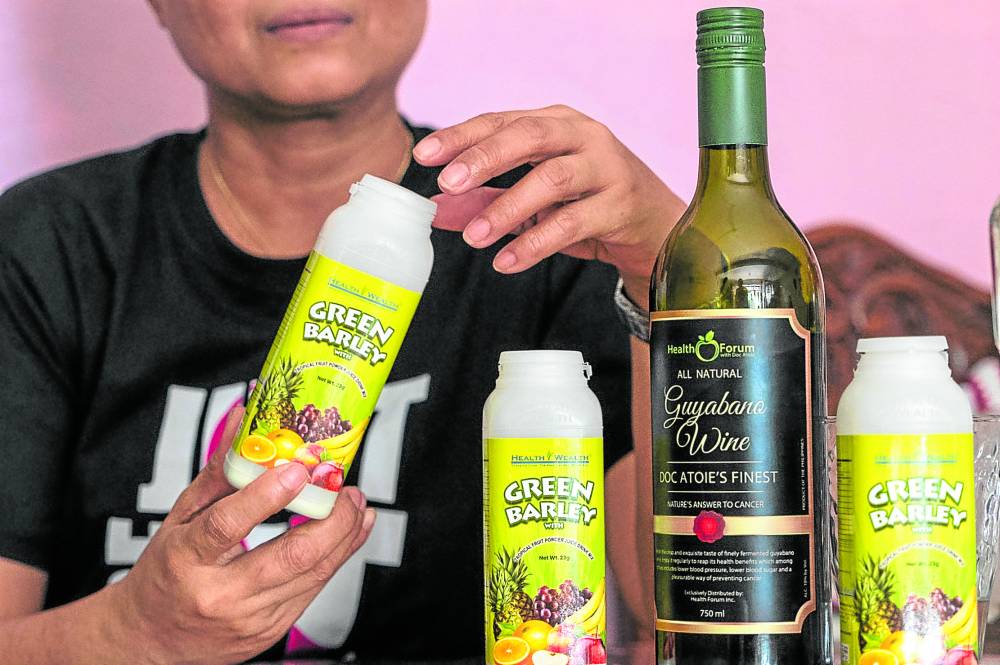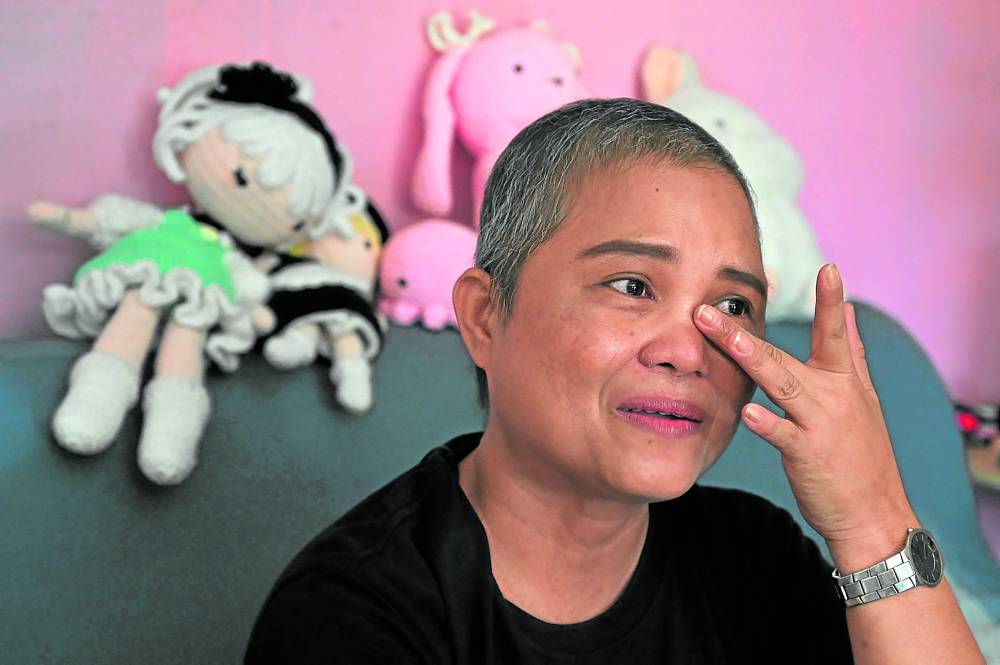

Needing options, Mary Ann Eduarte said in an interview with Agence France-Presse (AFP) at her home in Montalban, Rizal, on Feb. 6, that a nutritional supplement being promoted on social media as a cure for cancer. introduced. She and many other patients, wary of high medical bills, are turning to alternative treatments sold online. —Photo courtesy of AFP
Mary Ann Eduarte, a single Filipino mother, postponed chemotherapy for breast cancer for several years and instead took a nutritional supplement falsely promoted on social media as a cure for the deadly disease.
They didn’t work, and the cancer spread to her lungs and bones.
Eduarte is one of the many Filipinos who fall prey to medical misinformation on social media platforms, which rank among the heaviest users in the world.


A shortage of doctors, difficulty in accessing the archipelago’s hospitals, low health literacy, and fear of high medical costs have led many people suffering from chronic illnesses to seek alternative treatment online.
In recent years, digital investigative journalists at Agence France-Presse (AFP) have seen an explosion in the amount of posts and paid ads promoting unproven treatments for diseases such as cancer. .
This trend was accelerated by the COVID-19 pandemic, which overwhelmed healthcare systems and left many people too scared to go to the hospital.
Eduarte, 47, who makes a living selling beauty products online, discovered a lump in her right breast during a self-examination in 2014.
She was advised to undergo a biopsy to find out if it was cancer, but she was so scared that she delayed having the surgery for two years.
“testimony”
Instead, she spends about 50,000 pesos ($900) a month on nutritional supplements, such as drinks made from tropical fruits and barley grass, that she has seen advertised as cancer treatments on Facebook and YouTube. spent.
She finally agreed to undergo a biopsy in 2016, which confirmed the tumor was malignant.
But she refused chemotherapy, fearing she would get sick and lose her hair, and continued taking supplements for three more years.
“I really believed they would destroy my cancer cells because that’s what the marketing said,” Eduarte told AFP from his home near Manila.
“They were posting testimonies of people being healed.”
After the cancer spread, Eduarte agreed to chemotherapy.
“I made the wrong decision,” she admitted.
“These nutritional supplements actually cost more than if they received standard treatment right away.”
“Out-of-pocket costs”
Madonna Realyo, an oncologist at the Bicol Regional Hospital and Medical Center in the central Philippines, said online misinformation about cancer treatment is a “serious problem.”
“Five out of 10 patients I see ask me about something they’ve seen or read on the Internet, and 90 percent of the time, that information is wrong,” Rialyo said.
“Even if we give them the right information, it doesn’t mean they will listen to us or believe us.”
Cancer treatment costs can reach millions of pesos, leaving patients vulnerable to deceptive marketing of unproven products that claim to be cheaper.
Irene Antolin of the Philippine Breast Cancer Foundation says, “The reality is that when you are diagnosed with cancer, you end up paying a lot of money out of pocket.”
AFP has a global team of journalists who debunk misinformation as part of Facebook’s parent company Meta’s independent fact-checking program.
Fact checkers from around 90 organizations, including news organizations, check posts on Facebook, WhatsApp and Instagram.
AFP reports that Facebook posts falsely promoting products as natural cancer treatments, including one of the products used by Eduarte, “Doc Atoye’s Finest Guyabano Wine.” He has repeatedly exposed his mistakes.
false alarm
The drink was featured in hundreds of posts and shared on its Facebook page with tens, and in some cases, hundreds of thousands of followers.
The Food and Drug Administration (FDA) tells AFP it will go after companies and individuals who falsely advertise their products online as it does not yet have guidelines to implement parts of the 2009 law that created the Food and Drug Administration. He said he could not.
Instead, they issue warnings on their websites and social media pages.
“Our powers are limited,” FDA lawyer Pamela Sevilla told AFP.
Meta’s advertising policy prohibits “unrealistic promises or offers of results” related to “health, weight loss, or economic opportunity.”
Advertisements for over-the-counter medicines must comply with licenses and approvals required by local law.
These ads can be removed from the platform if flagged, but posts that don’t directly violate Meta’s community standards but are rated false by third-party fact checkers like AFP , will be labeled as misinformation and demoted, making it less likely to appear in your news feed. .
However, when AFP checked Meta’s ad library, it found that ads for “Doc Atoie’s Finest Guyabano Wine” and several other products debunked by AFP still existed.
silence due to lawsuit
The barrage of medical misinformation during the pandemic prompted Tagalog-speaking Melbourne doctor Adam Smith to create a YouTube video identifying misleading ads and posts.
“I realized that so many people in the country believed that they could treat diseases with supplements and vitamins. That was incredible to me,” Smith told AFP via Zoom. .
However, he quit after being hit with several lawsuits from companies that owned the products he was promoting.
“These companies and individuals are willing to use the Philippine judicial system to silence free speech and silence all criticism,” Smith said.
Eduarte, a cancer survivor, said she is now on a mission to educate others about the dangers of online misinformation.
“I took these nutritional supplements, but they did nothing to cure my illness,” she said. —AFP
read: The next big advance in cancer treatment could be a vaccine

